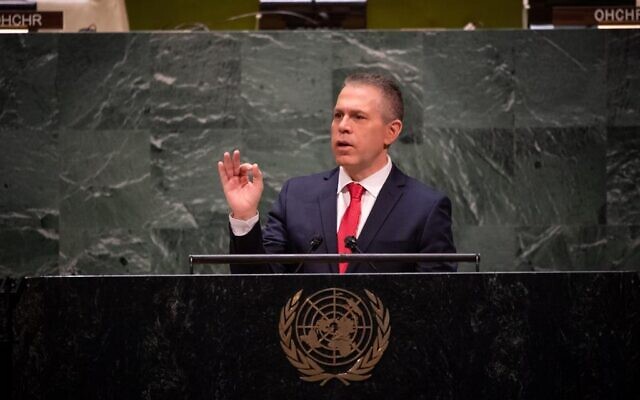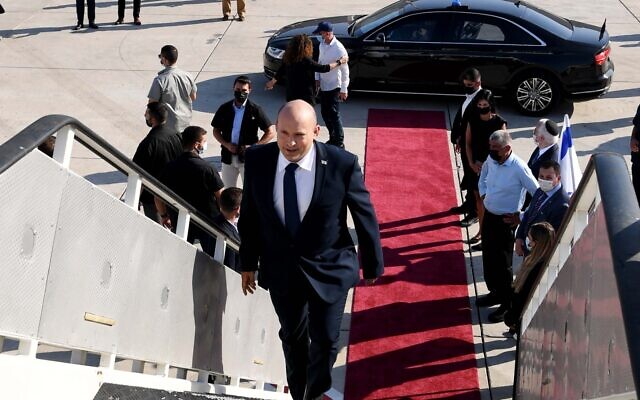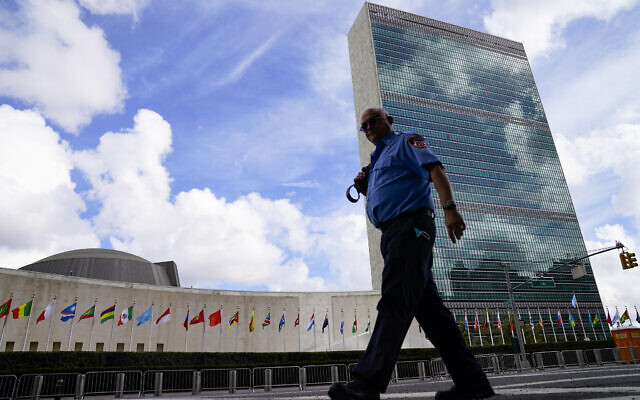The United Nations General Assembly was scheduled to hold a commemoration event in Durban, South Africa on Wednesday for the 20th anniversary of the controversial United Nations World Conference, which was accused of engaging in open antisemitism.
The first Durban Conference – held from August 31 to September 8, 2001, a few days before the September 11 terrorist attacks – was marked by deep divisions over issues of anti-Semitism, colonialism and slavery. The US and Israel walked out of the conference in protest in the tone of the meeting, which included plans to include a final text condemnation of Zionism as a form of racism – a provision that was eventually dropped.
At the 2009 conference, a speech attacking Israel by then-President of Iran Mahmoud Ahmadinejad led to a temporary walkout by several European delegates.
Israel’s ambassador to the United Nations, Gilad Erdan, said on Friday that a record 31 nations would boycott the commemoration due to concerns that it would have scenes similar to those seen in 2001 – more than double the number of countries that did so in the past.
“In recent months I have worked to make the world understand that the Durban convention was basically rotten,” he said in a Monday tweet. “I’m glad so many people today are understanding this.”
The United States, Canada, the UK, Australia and France are among the few major countries to boycott this year’s meeting.

Israel’s ambassador to the United Nations, Gilad Erden, speaks in New York in January 2021. (City of Azran / Israeli Mission to the United Nations)
However, the Conference of Presidents of major American Jewish organizations has said that only 20 countries are ready to boycott the event. It has urged more countries to join them in fighting “racism, bigotry and anti-Semitism”.
Following the commemoration, the Head of State will continue to deliver his annual speech at the spacious General Assembly Hall. Speakers include Jordan’s King Abdullah II, Indonesian President Joko Widodo and Kenyan President Uhuru Kenyatta.
For the first time since the COVID-19 pandemic began, more than two dozen world leaders appeared in person on the opening day of the General Assembly on Tuesday. The atmosphere was dire, with COVID-19 and the climate crisis the top issues for heads of state and government, and UN chief Antonio Guterres issued a grim warning that “we are at the edge of an abyss.”
Prime Minister Naftali Bennett is one of at least 83 world leaders planning to attend in person. Twenty-six leaders applied to speak remotely.
Bennett will address the gathering on Monday, September 27 and will speak about Israel’s national security and regional issues, according to his office. His remarks will likely focus on Iran’s nuclear program and its support for armed proxy groups.

Prime Minister Naftali Bennett boards a plane to the United States on August 24, 2021. (Avi Ohio/GPO)
Bennett’s predecessor, Benjamin Netanyahu, was known for making headlines at the United Nations General Assembly with his speeches on the Iranian nuclear threat, often using cardboard graphics and other props to make his point.
In addition to speeches by world leaders, the General Assembly usually also has hundreds of party events, but this year only a limited number are being held, mainly virtually or outside UN headquarters.
These include events on vaccines, on children as invisible victims of the coronavirus and conflict, on multilateralism and democracy, and on global hotspots including Yemen, Somalia, Afghanistan and Iraq.

A member of the FDNY walks past the United Nations Headquarters during the 76th session of the United Nations General Assembly in New York on September 21, 2021. (AP Photo/John Minchillo, Poole)
Additionally, the United Nations Security Council will hold a high-level meeting on climate and security on Wednesday.
Afghanistan and other major global challenges are expected to be on the agenda, including the lack of progress on the United States’ re-engagement in the 2015 Iran nuclear deal.
There are also high-level meetings on the Energy and Nuclear Test Ban Treaty, and a summit on linked systems of food production, processing, distribution and consumption, which according to the United Nations contribute an estimated one-third of greenhouse gas emissions.